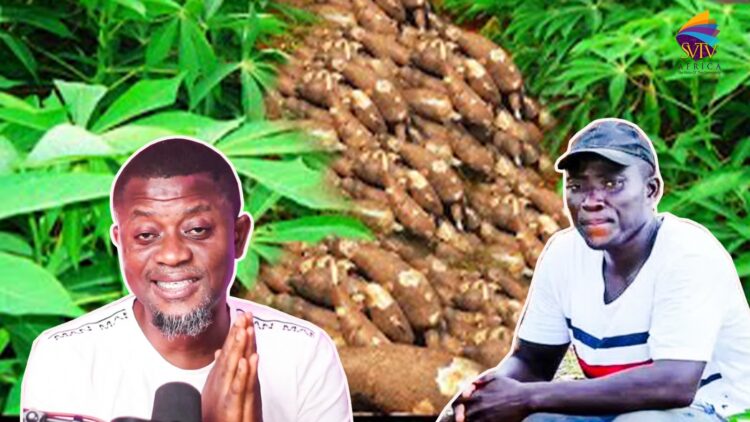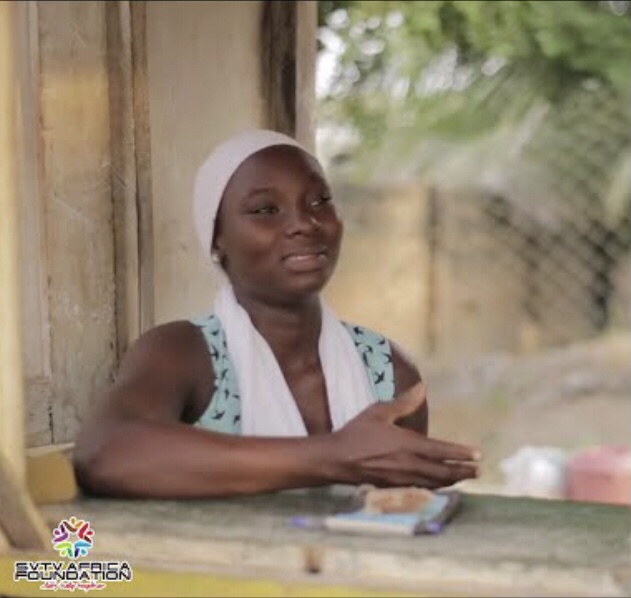Charles Ansah, a Ghanaian entrepreneur, shared his inspiring journey on SVTV Africa’s Business Link show with DJ Nyaami. Currently based in Bawdwease-Owutu-Otopiano, Charles is the proud owner of Bobby Farms, where he cultivates cassava, groundnuts, yam, okra, and other crops.
He explained that his transition into farming began in 2016 after leaving his corporate job. “I was once a sales executive for Vodafone and later became an external development manager for Visafone Cash,” Charles revealed. His previous work had him managing sales operations in areas like Nungua, Lashibi, and Spintex. He also briefly worked in media marketing with Kwesi Pratt and the team at Pan African TV, helping with community promotions.
Though Charles studied chemistry at the University of Ghana and KNUST, he couldn’t complete his studies due to family responsibilities. He noted that it was his mother’s revelation and his father’s encouragement that set him on the path to farming. “My dad even bought me rubber-tied boots to visit my aunt in Kade-Nsuom, where my farming journey truly began,” he recalled.
Starting with okra cultivation in Accra, Charles has since expanded significantly. He now manages over 300 acres of farmland in Weija-Gbawe and surrounding areas like Aseiso. In 2022, he was recognized as the Best Youth Farmer in the Weija District by the Ministry of Agriculture.
His farm processes cassava into both gari and cassava dough, with a network of women assisting in production. Buyers from Accra regularly travel to purchase his products. “Farming is far more rewarding than most corporate jobs,” he stated. “In just one year, you can earn profits that take years to save in the corporate world.”
Charles estimates that it costs about GHS 30,000 to manage a full farming cycle, and each acre can yield between GHS 10,000–12,000. “If you invest GHS 30,000 in cassava farming and earn GHS 100,000, that’s over GHS 70,000 in profit. After deducting miscellaneous costs, you still take home around GHS 50,000. No investment pays that well,” he emphasized.
He believes farming can empower the youth and offer real financial freedom. “If I had stayed in the corporate world, I wouldn’t have built a house, bought a tricycle (Aboboyaa), or given my kids the quality education they enjoy now.”
Despite the success, Charles admits that access to land remains a major challenge for aspiring farmers. Still, he encourages the youth to venture into agriculture. “In the past, farming wasn’t respected, but today, farmers are doing well. With the right support, we can inspire more people and transform the economy.”
Watch The Video Below:

















